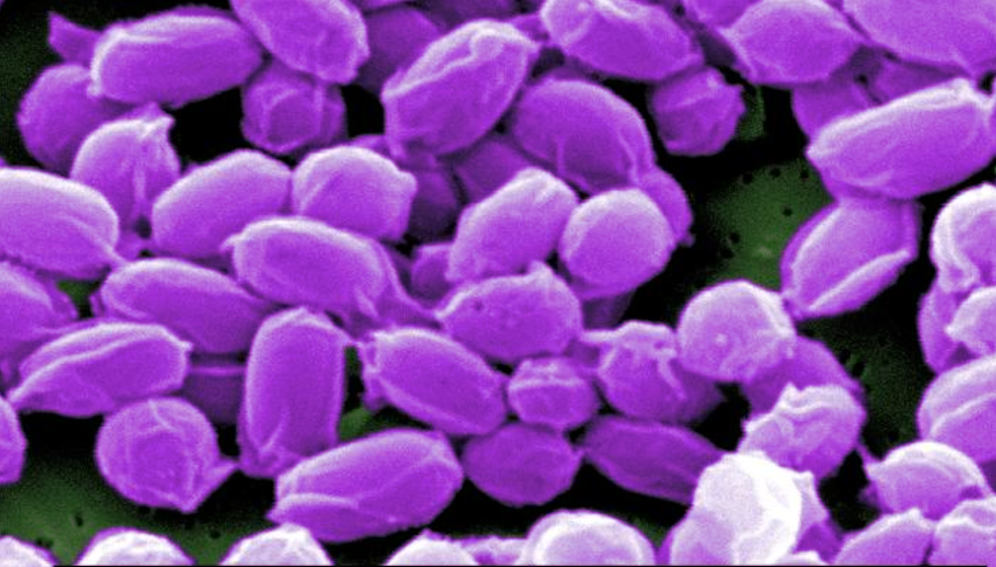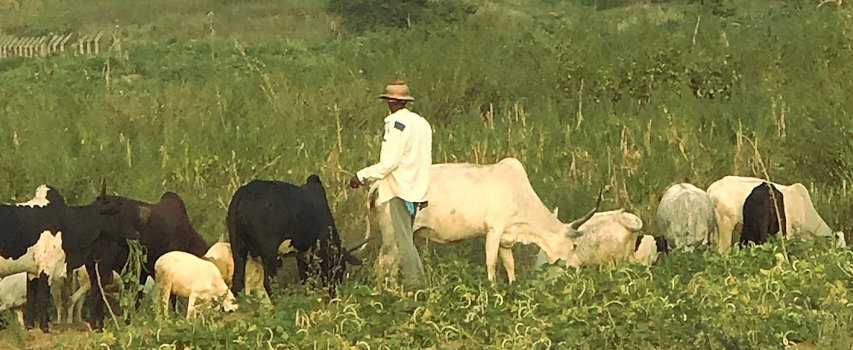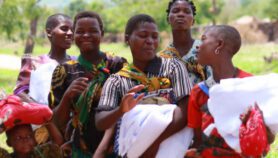17/08/23
Anthrax vaccine funding urged amid West Africa outbreak

By: Abiose Adelaja
Send to a friend
The details you provide on this page will not be used to send unsolicited email, and will not be sold to a 3rd party. See privacy policy.
[LAGOS] As Ghana and Nigeria grapple with outbreaks of anthrax, scientists say governments must prioritise funds for vaccination to prevent a re-emergence of the disease across West Africa.
Anthrax is a zoonotic disease – transmissible from animals to humans – caused by the spore-forming bacterium Bacillus anthracis.
Dozens of animals and one person died as a result of confirmed cases of anthrax in the Upper East region of northern Ghana in early June, while the disease was confirmed in Nigeria’s north-central state of Niger in July.
“We are therefore calling on the federal and state governments, philanthropies as well as well-meaning Nigerians to make donations for vaccines.”
Oladotun Fadipe, veterinarian, Nigeria
Fenteng Danso, Ghana’s head of veterinary epidemiology, told SciDev.Net that the discontinuation of vaccination in the country was to blame for the recent outbreak.
“We were doing yearly vaccinations for the northern regions, but the Ministry of Food and Agriculture was not supporting with funds so we couldn’t continue for up to five years now.
“There was no anthrax case until this year, which happened because we had stopped vaccination.”
Anthrax can infect livestock and other animals when they breathe in or ingest spores in contaminated soil, plants, or water. Humans then become infected by handling animals or animal products that contain spores.
As well as causing high mortality among animals, people infected with anthrax suffer skin blisters and sores and it can lead to more serious illness.
Prevention is centred around treatment and vaccination of livestock, which has mostly been discontinued in countries now witnessing an outbreak.
Danso expressed concerns about re-emergence in parts of the northern region of Ghana that falls within the anthrax belt – where there is a prolonged dry season and too little grass for ruminants such as cows and goats to feed on.
This means the animals have to graze to soil level and are more likely to inhale bacterial spores from the soil, Danso explained.
“The best control is continual vaccination of animals because anthrax is endemic in these areas,” he added.
The government of Ghana said more than 23,000 animals had been vaccinated in the affected regions, 100,000 vaccine doses had been distributed, and another 100,000 doses were being produced.
In Nigeria, the National Veterinary Research Institute says it can produce enough vaccines to cover the national herd.
“Our target is to vaccinate 10 million animals,” Maryam Muhammad, the institute’s chief executive, told SciDev.Net.
“This is not the total population of animals in the country, but this will provide the ‘herd immunity’ required to protect the national herd.”
She added, however, that the vaccines were only available for sale, not for distribution free of charge.



Livestock grazing openly in Nigeria. The government plans to vaccinate 10 million animals following an outbreak of anthrax – a disease that can infect livestock and other animals when they breathe in or ingest spores in contaminated soil. Photo by Audu King (CC BY-SA 4.0).
Anthrax funding gap
Oladotun Fadipe, a veterinarian and member of the Anthrax Technical Working Group in Nigeria, told Scidev.Net that while the Nigerian federal government usually supports the states to purchase vaccines, the onus is on state governments to do so.
Fadipe says he fears that resources to buy vaccines may not be prioritised amid other pressing healthcare challenges including lassa fever, diphtheria and meningitis.
“We are therefore calling on the federal and state governments, philanthropies as well as well-meaning Nigerians to make donations for vaccines,” said Fadipe.
Fadipe’s concern is shared by the One Health Quadripartite, comprised of the Food and Agriculture Organization (FAO), the World Organisation for Animal Health, the United Nations Environment Programme and the World Health Organization (WHO).
“Zoonoses like anthrax constitute a constant social, public health and economic burden, yet they are often underestimated, which in turn leads to neglect by policymakers and funding agencies. Thus, often times it may not get the attention and resources required to tackle it,” the Quadripartite said in a policy document.
So far, the Nigerian government has bought 50,000 doses each for Niger and Lagos states where several animals are reported to have been infected.
The country’s anthrax working group – tasked with coordinating the response – said it had begun deploying vaccines to frontline states where livestock are transported into the country.
Simeon Cadmus, director of the Centre for Control and Prevention of Zoonoses at the University of Ibadan, Nigeria, told SciDev.Net: “If the government prioritises the health of humans and animals, more funding [to fight anthrax and zoonotic diseases] should be provided.”
The government of Ghana, in its 2023 budget statement, said it produced 8.86 million doses out of a target of 15 million in 2022 to fight anthrax and the contagious Newcastle disease, which affects birds.
The FAO has pledged to support the Nigerian government to mobilise human and financial resources to control the country’s recent anthrax outbreaks.
This piece was produced by SciDev.Net’s Sub-Saharan Africa English desk.















